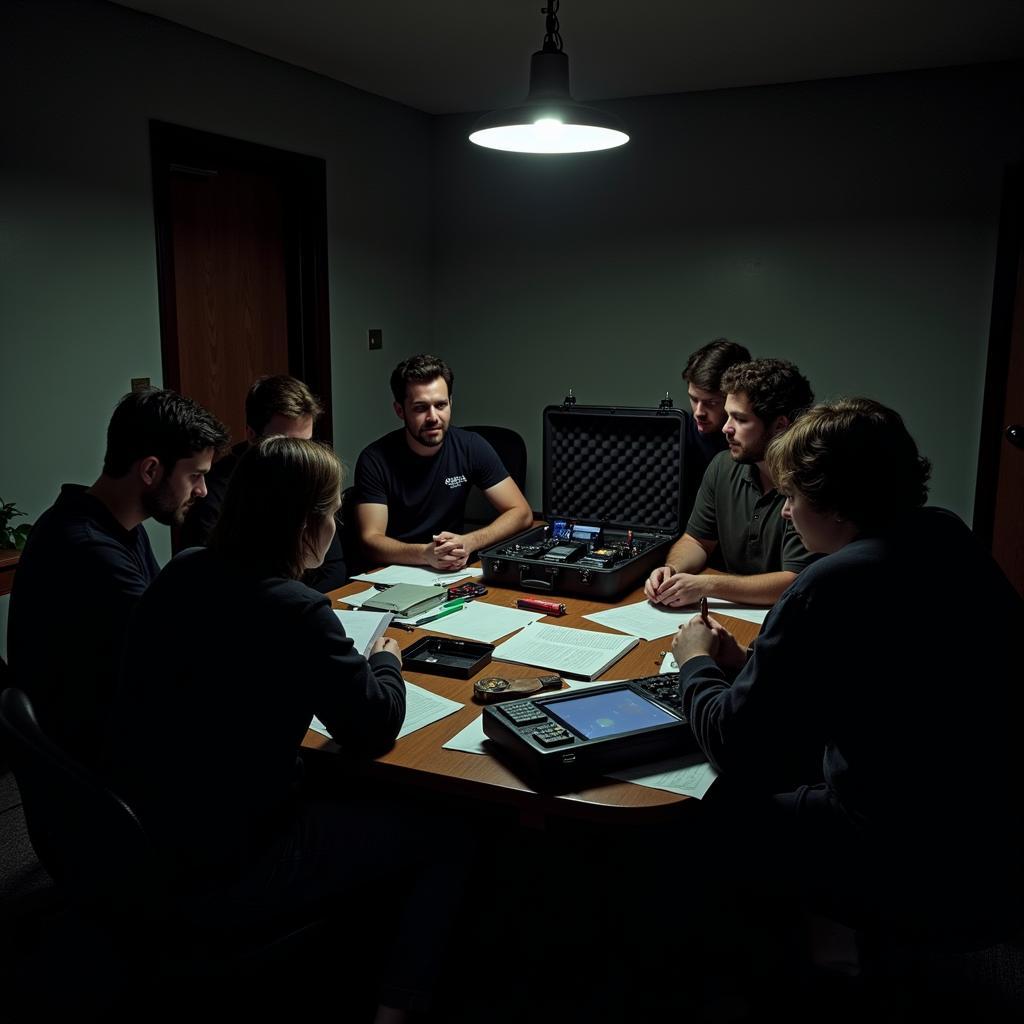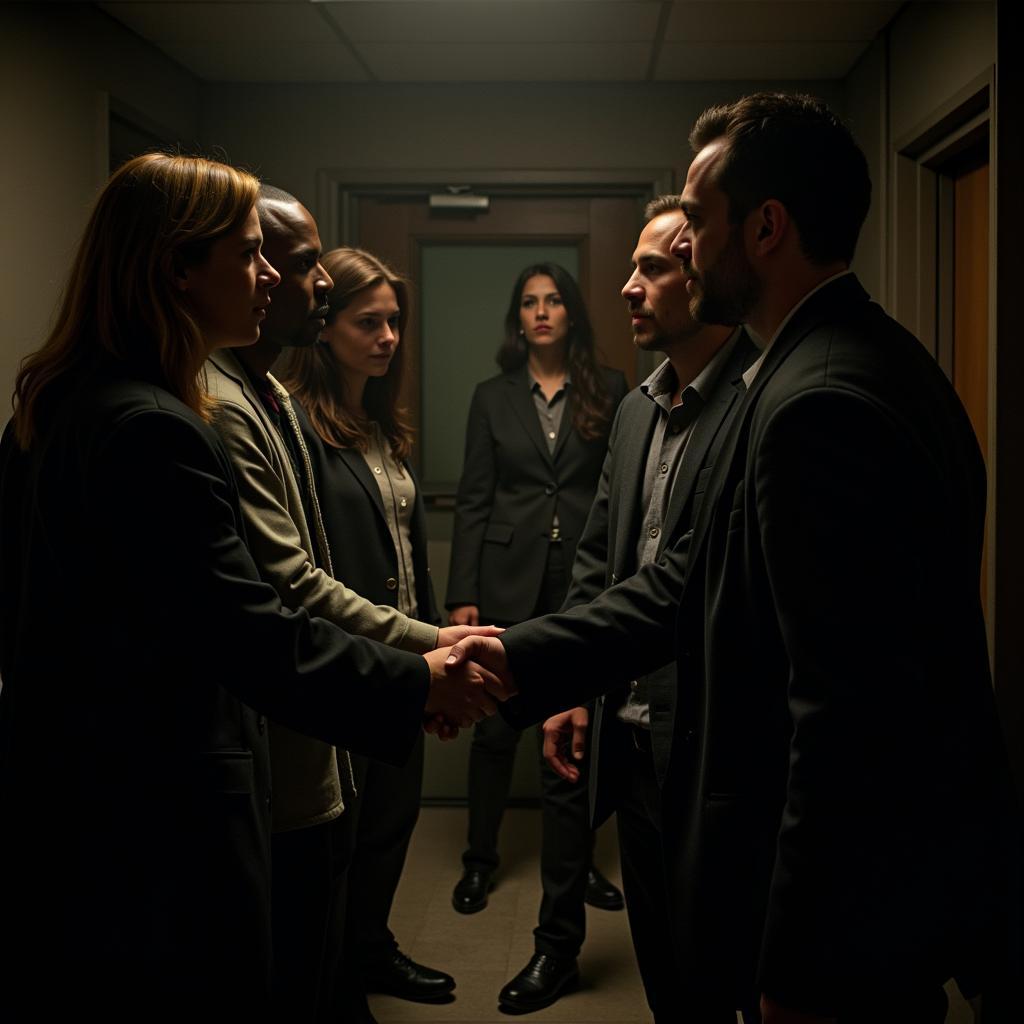A Research Debrief is a crucial step in any investigation, particularly within the realm of paranormal research. It allows investigators to analyze their findings, share observations, and ultimately draw conclusions about the phenomena they’ve encountered. Within the first few minutes of a debrief, the groundwork is laid for understanding the events that transpired. This practice is essential for maintaining objectivity and ensuring the integrity of the investigation. Learn how this important process unfolds and how it contributes to a deeper understanding of the unknown.
What is a Research Debrief and Why is it Important?
A research debrief, in the context of paranormal investigation, is a structured discussion that takes place after an investigation. a researcher uses debriefing when he has completed a field investigation. It involves all team members sharing their individual experiences, data collected, and preliminary interpretations. This collaborative process helps identify patterns, anomalies, and potential explanations for the observed phenomena. A thorough debriefing is critical for separating subjective experiences from objective data, minimizing bias, and ensuring the validity of the research. It’s the cornerstone of responsible paranormal research.
Why is debriefing so important? Well, imagine investigating a supposedly haunted location. Team members might experience different things – one hears a whisper, another sees a shadow, and a third records an unexplained temperature drop. A debrief allows these seemingly disparate observations to be pieced together, potentially revealing a more complete picture of what occurred. Without this structured discussion, valuable information could be lost or misinterpreted.
 Paranormal Research Team Debriefing After Investigation
Paranormal Research Team Debriefing After Investigation
Key Elements of an Effective Research Debrief
Several key elements contribute to a successful research debrief. First, a designated facilitator should guide the discussion, ensuring everyone has a chance to speak and that the conversation stays focused. Second, all data collected, including audio recordings, video footage, and sensor readings, should be reviewed and analyzed. Third, the debrief should be conducted as soon as possible after the investigation, while memories are still fresh. Finally, it’s essential to create a safe and non-judgmental environment where team members feel comfortable sharing their experiences, even if they seem unusual or insignificant.
debriefing in research is a cornerstone of credible paranormal investigations. Dr. Evelyn Reed, a leading parapsychologist, emphasizes, “A well-executed debrief can be just as revealing as the investigation itself. It’s where the raw data transforms into meaningful insights.”
How to Conduct a Research Debrief in Paranormal Investigations
A structured approach is crucial for maximizing the effectiveness of a research debrief. Here’s a suggested process:
- Gather the Team: Ensure everyone involved in the investigation is present.
- Review the Objectives: Briefly recap the goals of the investigation to refocus the team.
- Individual Reports: Each team member shares their personal experiences and observations.
- Data Analysis: Review all collected data, correlating it with individual reports.
- Discussion and Interpretation: Discuss potential explanations for the observed phenomena.
- Conclusion and Next Steps: Summarize key findings and determine any follow-up actions.
What if a team member experienced something they’re hesitant to share? Creating a supportive environment is vital. Encourage open communication and remind everyone that all experiences, no matter how seemingly insignificant, are valuable data points.
Common Challenges and Solutions in Research Debriefing
While a research debrief offers numerous benefits, several challenges can arise. One common issue is researcher bias, where preconceived notions influence interpretation of the data. peer debriefing qualitative research can help mitigate this. Another challenge is emotional contamination, particularly after intense or frightening experiences. Debriefing sessions should incorporate strategies for emotional processing and support. Lastly, incomplete data can hinder accurate analysis. Ensuring meticulous data collection throughout the investigation is crucial.
Professor Alistair Thorne, a renowned expert in anomalous phenomena, advises, “Embrace skepticism. Challenge assumptions. A good debrief is a battleground of ideas, not a chorus of agreement.”
ap psychology research methods are valuable resources for understanding the importance of objectivity in research.
Conclusion: The Power of a Research Debrief
A comprehensive research debrief is paramount in paranormal research. It provides a structured framework for analyzing data, separating fact from speculation, and ultimately, uncovering the truth behind the unexplained. By prioritizing objectivity, embracing collaboration, and addressing potential challenges, researchers can unlock the full potential of a research debrief and advance our understanding of the mysterious world around us.
coolican research methods and statistics in psychology provides further insights into the principles of rigorous research.
 Concluding a Paranormal Research Debrief
Concluding a Paranormal Research Debrief
FAQ
- What is the purpose of a research debrief? To analyze data, share observations, and draw conclusions.
- Who should participate in a research debrief? All team members involved in the investigation.
- When should a research debrief be conducted? As soon as possible after the investigation.
- What are some common challenges in a research debrief? Bias, emotional contamination, and incomplete data.
- How can researcher bias be minimized? Through peer debriefing and critical analysis.
- Why is a structured approach important for a debrief? To ensure thoroughness and objectivity.
- What type of data should be reviewed during a debrief? All collected data, including audio, video, and sensor readings.
Need support with your Paranormal Research? Contact us at Phone: 0904826292, Email: research@gmail.com or visit us at No. 31, Alley 142/7, P. Phú Viên, Bồ Đề, Long Biên, Hà Nội, Việt Nam. We have a 24/7 customer support team.